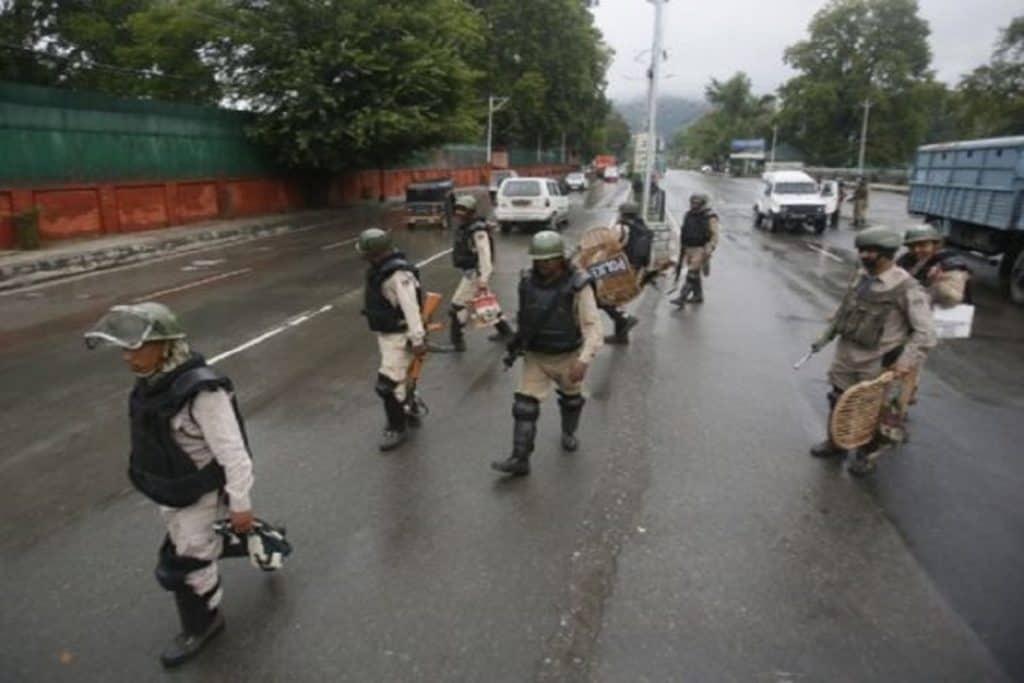The abolition of the special status of Kashmir was the reason for the war between Pakistan and India. The parties in the conflict intend at any time to begin active hostilities to resolve a long-standing territorial dispute. The situation is complicated by the fact that the Pakistan-India conflict poses the threat to turn into a global crisis, since China, Iran, the United Arab Emirates and Turkey have already shown special interest in participating in it.

Specifically for World Geostrategic Insights, we talked about this with Shoaib Khan, Visiting Faculty, Centre for Central Eurasian Studies, University of Mumbai; President, ALFAAZ Education and Cultural Society, Mumbai; Lecturer, Mahim Social Workers College, Mumbai.
1. As a result of the cancellation of the special status of the state of Kashmir, the likelihood of a military conflict between India and Pakistan has significantly increased, which is confirmed by statements by the Prime Minister of Pakistan Imran Khan about his readiness to use the army and the deployment of additional security forces by the Indian government to the region. Does this mean that New Delhi and Islamabad are on the verge of war? How likely is it that other members of the international community other than Pakistan and India can be involved in Kashmir? I mean the Lebanese Hezbollah group and Iran, which are on the side of Pakistan, as well as the Afghan Taliban movement, which India is trying to influence?
– According to the Indian secret services, Islamabad is already actively using Afghan militants to help the armed groups of Kashmir. The military on both sides are able to defend their territories. Now that the armed forces of Pakistan and India are fully equipped and trained, any even minor provocation can lead to great conflict. Meanwhile, the bloodshed, which was already predicted in the US report on Kashmir and the situation of minorities in other parts of the country a few days ago, will turn against India not only Muslim countries, but almost the whole world.
2. There is an opinion that the escalation of the conflict between Islamabad and New Delhi is artificially provoked only on the basis that Pakistan seeks to actively develop relations with Iran. In this regard, the initiators of the conflict through pressure on Islamabad are trying to achieve a reaction from Tehran and, thus, limit its influence in the region. Is it so? Is it possible to argue that the present stage of the conflict in Kashmir is not beneficial to either India, Pakistan or the entire world community?
– Iran, although it is friends with both countries, has always been on the side of Pakistan in all its wars against India. Teheran has always supported the Kashmir affair. However, this conflict is not artificially caused. This is a real danger, because the major powers are concerned about any escalation. Yes, if you look at the situation impartially, then economically, politically and socially, war will create chaos for the region, in which third forces will be involved, and, above all, China. So, given that along with Pakistan, China has also shifted its forces along the borders of India, it is likely that the conflict may not be limited to the neighbors of South Asia.
3. India and Pakistan almost equally have sufficient stockpiles of nuclear weapons, which until recently had been an instrument to deter military aggression from any state or group of influence. Is it likely that as a result of the escalation of the conflict in Kashmir, New Delhi or Islamabad could use their nuclear capabilities for military purposes?
– Pakistan and India have large stockpiles of nuclear warheads. Islamabad threatened that he would not be embarrassed to use his nuclear arsenal against his neighbor because of the small size of his army. Pakistan threatening with nuclear it’s just a rhetoric, but Pakistan is conventional strong enough to defend itsels, like India. However, it is difficult to say now whether India will be ready to use the weapon of mass destruction to repel possible aggression. At the moment, no one is safe from the fact that nuclear weapons will not be used.
4. What are the most likely scenarios in Kashmir: in the next 10 days, 1 month, 1 year?
– We must wait and observe the development of events in the coming days. It is expected that certain changes in the behavior of India and Pakistan can occur after August 14 and 15, 2019, when Pakistan and India will celebrate Independence Days, as well as the 70th anniversary of the end of the war in Kashmir. The exact time period is difficult to determine, but, in my opinion, the next month will be crucial since the Government of India cannot permanently arrest Kashmir leaders and cannot impose a curfew for an indefinite period. What will be the situation after their release, since protests and demonstrations have already broken out in the region, as well as clashes involving security forces on the street. This act is a threat, and other Indian states fear similar actions against them in the coming days. The Kashmir factor is likely to be witnessed in other parts of India.
Image Credit: AP Photo/Mukhtar Khan)







